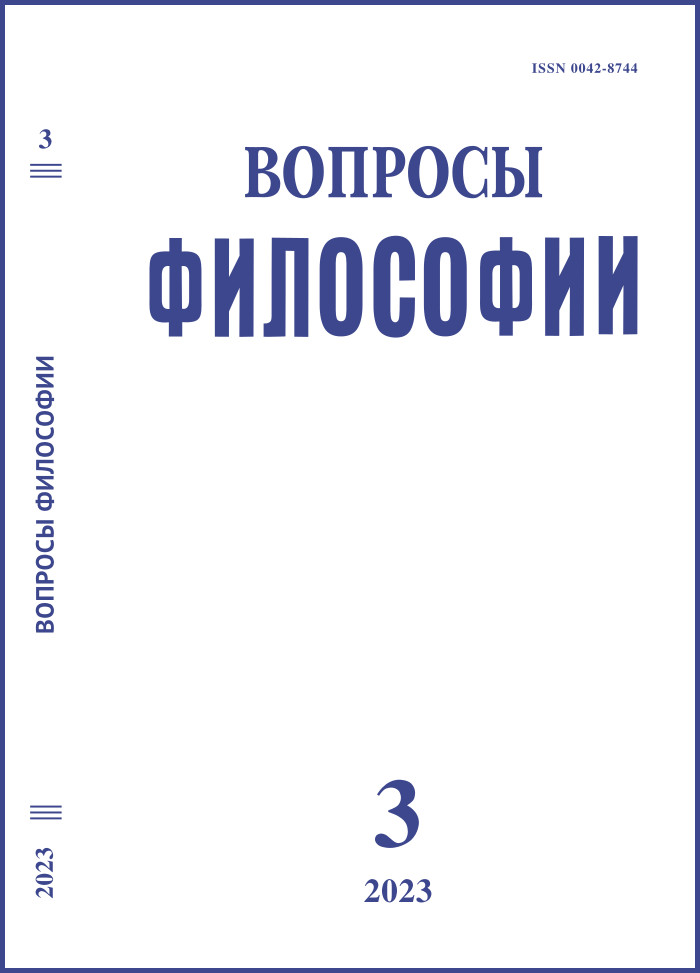Chinese Studies in the Russian (Soviet) Philosophy of Science and Technology
DOI:
https://doi.org/10.21146/0042-8744-2023-3-33-46Keywords:
China, Russia, questions of philosophy of natural science, philosophy of scienceAbstract
Since the early 1950s, the first generation of Chinese scientists who studied Engels’ Dialectics of Nature have been dealing with philosophical problems of natural science in the wake of developments in Soviet philosophy. This was dictated by the need to serve the needs of national policy and the tasks of developing a philosophical theoretical system in the PRC. The fruits of such cooperation significantly influenced the theoretical construction and development of the “dialectic of nature in China”. Over the past 70 years, Chinese scientists have continuously observed the development of the Soviet philosophy of natural science and its subsequent theoretical offshoots, using methods of comparative analysis in relation to the historical context of their existence. The philosophy of science and technology originated in the Soviet Union and is developing in the Russian Federation on the basis of Russian scientific culture, which contains the “gene” of materialistic dialectics (as, indeed, the “mutations” that arose as a result of countering this gene). As a branch of knowledge, the philosophy of science and technology has undergone an evolution from Russian natural philosophy to the Soviet philosophy of natural science, has passed the path of formation of the Soviet (and later – Russian) philosophy of science, philosophy of technology, as well as such a promising research direction as “science, technology and society”. The philosophy of science and technology in Russia deserves that the international scientific community should study it, research and adopt its experience, and also, if possible, make its feasible contribution to “science and technology studies in Russia (USSR)” and to the study of the direction “science, technology and society” in Russia

